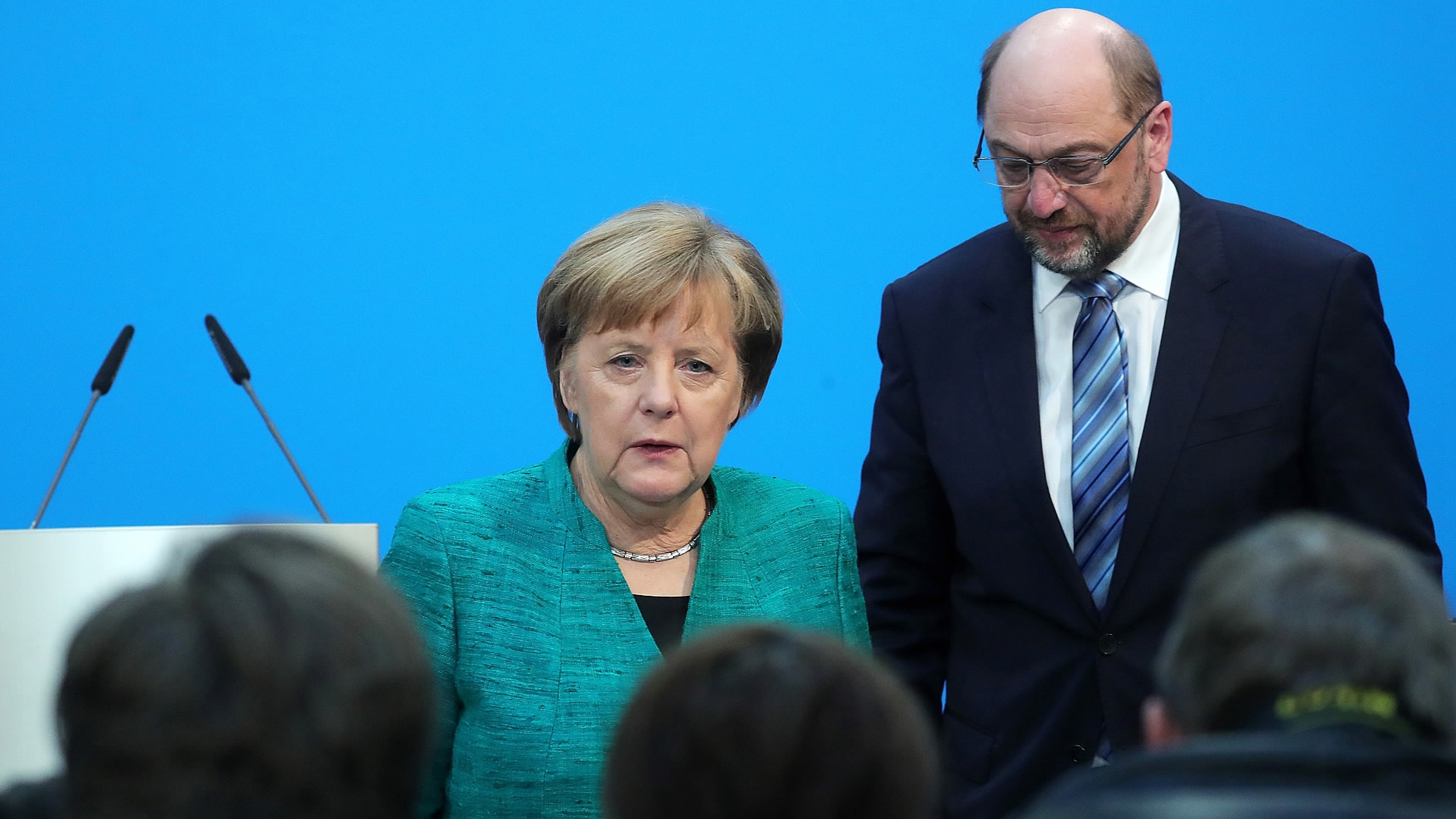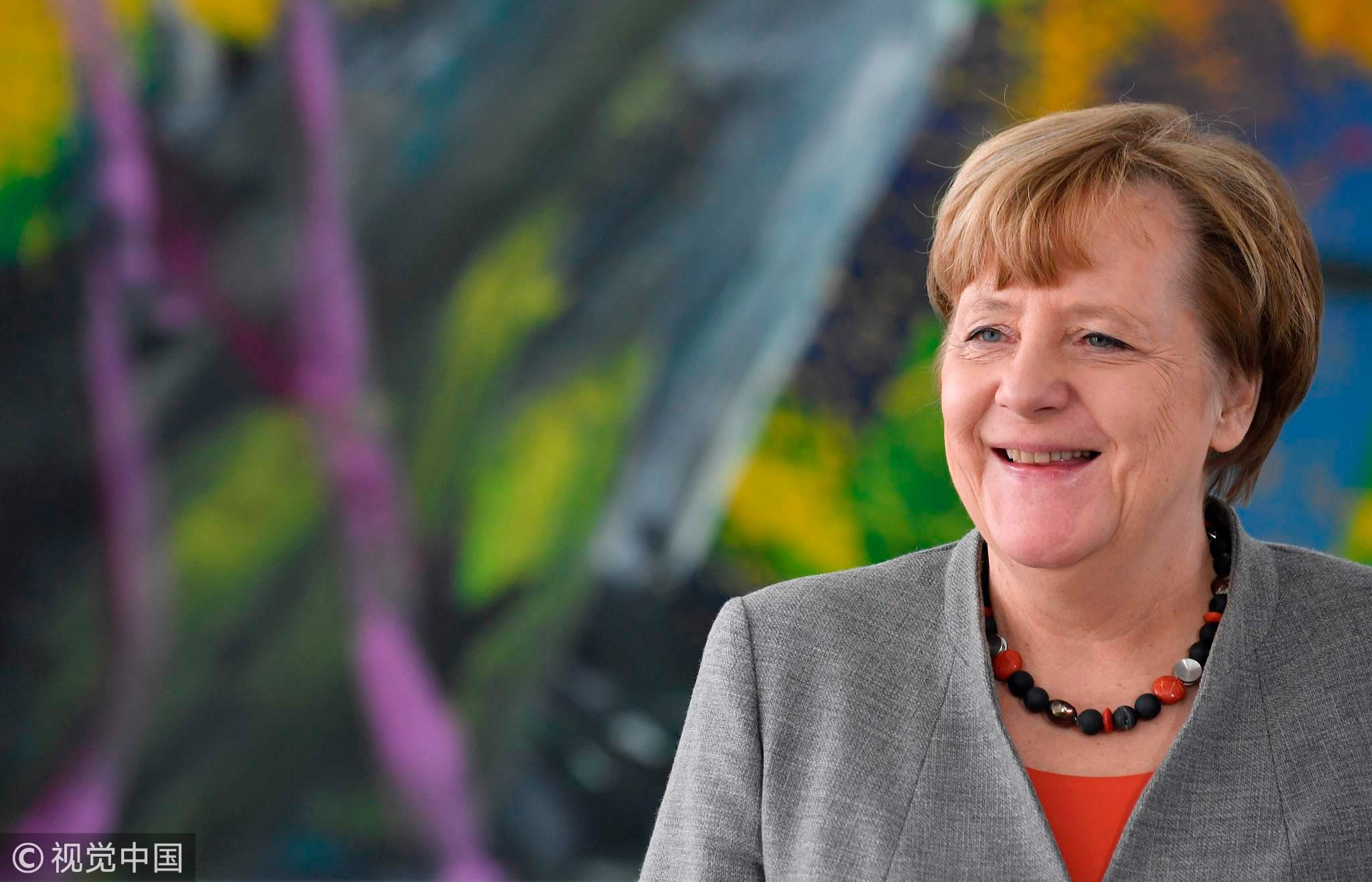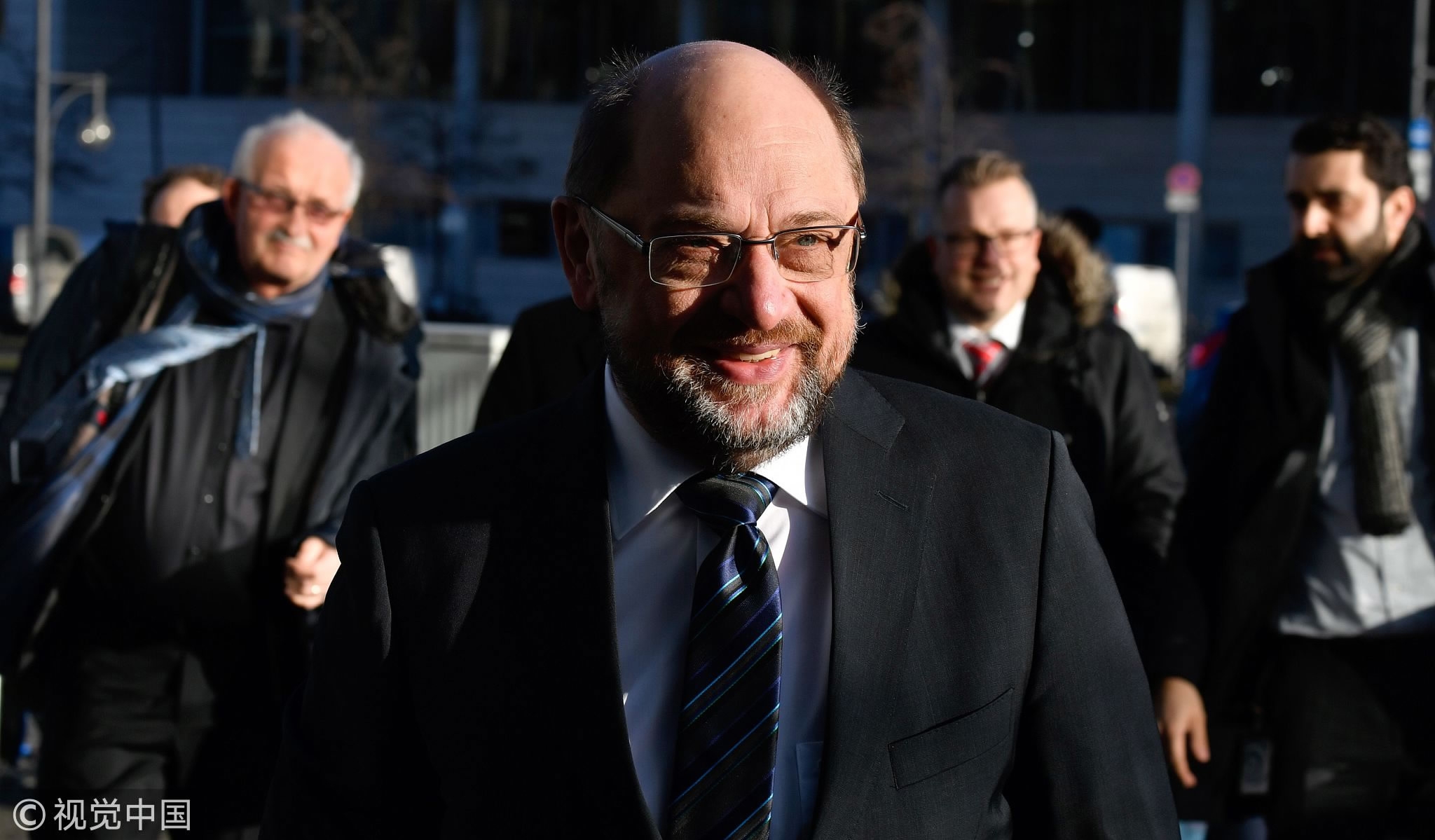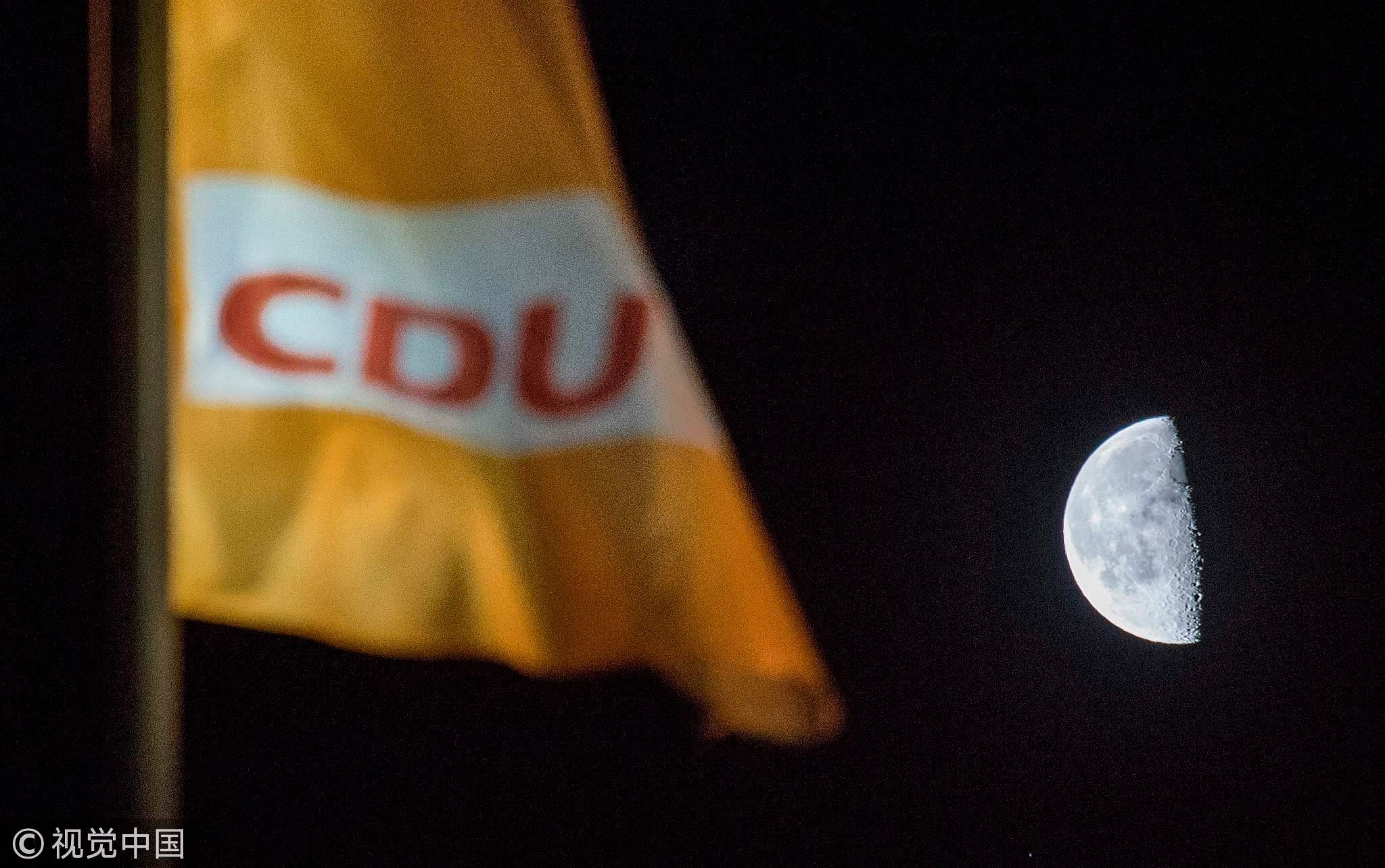
Politics
15:50, 13-Feb-2018
Merkel, SPD under renewed fire over German coalition deal
CGTN

German Chancellor Angela Merkel and the leader of the Social Democrats (SPD) faced further criticism on Monday from within their own parties over a new coalition deal that must still be approved by disgruntled SPD rank-and-file members.
Germany has been without a proper government since an inconclusive election last September, which saw Merkel's conservatives and the center-left SPD both lose seats and a far-right party enter the Bundestag lower house for the first time.
As both the parties that have dominated post-war Germany descended into internal squabbling, a new INSA poll showed their popularity had slumped, their combined support at just 46 percent.
The SPD was at a record low of 16.5 percent, barely ahead of the far-right Alternative for Germany (AfD).

German Chancellor Angela Merkel walks out of her office to meet the President of the German Horticultural Association in the chancellery in Berlin, Germany, February 9, 2018. /VCG Photo
German Chancellor Angela Merkel walks out of her office to meet the President of the German Horticultural Association in the chancellery in Berlin, Germany, February 9, 2018. /VCG Photo
Merkel annoyed members of her Christian Democrats (CDU) by agreeing in the coalition talks to cede the finance ministry to the SPD. And members of the SPD could yet reject the coalition deal in a ballot whose results will be announced on March 4.
On Sunday, Merkel defended "painful" concessions she made to the SPD to win herself a fourth term as chancellor, and she said criticism among her conservatives was not a sign her authority was waning.
Guenther Oettinger, a senior CDU member and the European Union's budget commissioner, rushed to her defense on Monday: "I find her still strong ... and am sure she will meet the expectations of our party and the public in the coming days."
But Oettinger also conceded that this would be her final term as chancellor, if the new "grand coalition" goes ahead, addressing a succession debate that is starting to take hold as the CDU starts to look ahead to a post-Merkel era.
"It is clear to everyone that the chancellor is going into a last term," he told Deutschlandfunk radio, adding that she would "skilfully set in motion the succession in these four years".

Martin Schulz, leader of Germany's social democratic SPD party, arrives for a meeting with the leaders of the conservative CDU/CSU union on January 8, 2018, in Berlin. /VCG Photo
Martin Schulz, leader of Germany's social democratic SPD party, arrives for a meeting with the leaders of the conservative CDU/CSU union on January 8, 2018, in Berlin. /VCG Photo
Paul Ziemiak, the leader of the conservatives' youth wing, welcomed Merkel's readiness to set out her picks for ministerial posts before a CDU party conference on Feb. 26. But he lamented the decision to give up the finance ministry to the SPD.
"That did not go down well with our (party) base," he said.
Orderly Procedure
Many in the SPD rank and file are also unhappy with the coalition deal, which will renew an awkward ruling alliance with Merkel's bloc that has governed Germany since 2013.
The leader of the SPD's youth wing is traveling around Germany urging the party's 464,000 members to vote against the deal in the postal ballot.
Top SPD officials will meet on Tuesday to decide on a change of leadership. Martin Schulz said last week he would quit as leader so the party could reinvent itself, and urged members to back parliamentary floor leader Andrea Nahles as his successor.

A half-moon glows next to a Christian Democratic Union (CDU) flag fluttering over the party's headquarters prior to a meeting with the leaders of the conservative CDU/CSU union and the Social Democratic SPD Party on January 8, 2018, in Berlin. /VCG Photo
A half-moon glows next to a Christian Democratic Union (CDU) flag fluttering over the party's headquarters prior to a meeting with the leaders of the conservative CDU/CSU union and the Social Democratic SPD Party on January 8, 2018, in Berlin. /VCG Photo
Schulz on Friday then gave up plans to become German foreign minister, hoping to shore up support among SPD members for the new coalition - but the manner in which he anointed Nahles as his successor rankled with many in the party.
"We can't have a situation where two, three or four people have a discussion and say who does what. Rather, there should be an orderly procedure," said SPD lawmaker Hilde Mattheis.
Merkel said on Sunday that if SPD members rejected the coalition agreement, Germany would probably hold a new election.
Source(s): Reuters

SITEMAP
Copyright © 2018 CGTN. Beijing ICP prepared NO.16065310-3
Copyright © 2018 CGTN. Beijing ICP prepared NO.16065310-3